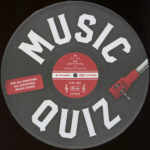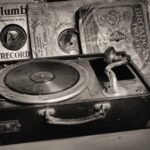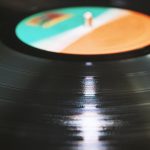What separates Hendrix and Clapton from somebody who can just play fast? More broadly, what makes a piece of music good, bad or insipid? On one level it’s easy: If you like it, it’s good. Beyond that, however, people who make and critique music have some important things to say about the structure of music that can educate and enhance enjoyment.
Beyond YouTube: Mapping Music on the Internet
Introduction
Links Only
Descriptions and Links
> Album Covers
> Song Covers
> Blues
> Children’s Music and Parental Guides
> Downloading, Streaming, Playlists
> Finding Live Music
> Folk, Acoustic, Americana
> Halls of Fame and Museums
> History Timelines and other Deeper Dives
> Instruments and Resources for Musicians
> Internet Radio
> Jazz
> Lyrics and Song Interpretations
> Maps and Recommendation Engines
> Mastering Remastering
> Miscellaneous Sites Including Indie, Girl Groups, EDM, Trap, Pop
> Music Archives
> Music News and Commentary
> Odd and Unique Sites
> Online Music Communities
> Organizing Music Libraries
> Rating Music
> Regional Sites
> Rock
> Setlists
> Television, Podcast, Movies and Performance Sites
> Trivia
> Video Sites
> Wikis
Opinion: Descriptions and Links
> Best Soundtracks
> Focus on the Greats: Rock
> How to Listen to Music
> Movies About Rock
> Recommended Rock Books
> Recommended Videos
“10 Ways to Listen to Music Better”
Every Song Ever is the definitive field guide to listening in an age of glorious overwhelming abundance. By revealing the essential similarities between wildly different kinds of music, Ben Ratliff shows how we listen to music now, and suggests how we can listen better.

“How to Really Listen to Music”
Rachel Ament: “But sometimes I wonder what would happen if we listened harder, or better, or more rigorously. This might seem exhausting. Am I incapable of relaxing? Probably. But music scholars insist that if we listened to music the way a musician would, understanding how notes trigger feelings, how tones take on their own textures and meanings, then we might experience something more visceral and expansive. We could push deeper into every song.
I reached out to various musicians and music scholars to gather some insights about how nonmusicians like myself could select and listen to music more intentionally. Below is a quick, beginner’s guide to what I learned.”
“What to Listen for in Music”
This is what Anastasia Tsioulcas said about “What to Listen for in Music” by Aaron Copland in her own article on the same topic: “Before we go any further: this little cheat sheet comes with apologies to Aaron Copland, whose short and brilliant 1939 book. “What to Listen for in Music” remains the ur-text, and from whose wealth of ideas I am stealing shamelessly. As fellow composer William Schuman rightly wrote in his introduction to the 1988 Copland reprint, ‘The uninitiated can gauge its significance by imagining a book by Rembrandt called “What to Look for in Painting.‘ ”
10 Ways to Listen to Music Better
Every Song Ever is the definitive field guide to listening in an age of glorious overwhelming abundance. By revealing the essential similarities between wildly different kinds of music, Ben Ratliff shows how we listen to music now, and suggests how we can listen better.
Brain Pickings
“How to Listen to Music: A Vintage Guide to the 7 Essential Skills”




